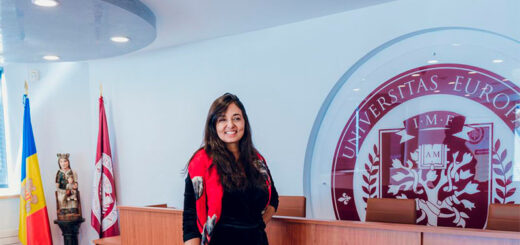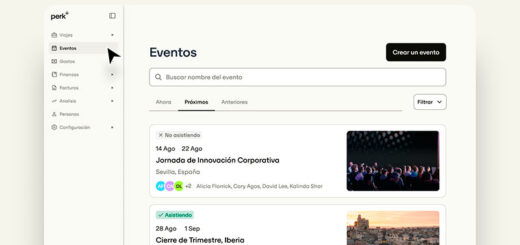David Chapple, Event Director, Business Travel Show
Interview with David Chapple, Event Director, Business Travel Show.
How has the show changed for 2017 ?
David Chapple We are investing heavily in new technology and innovation for 2017. Every buyer and exhibitor attending the Business Travel Show will receive a ‘Poken’ – a hand-shaped USB that clips to their lanyard allowing them to exchange virtual business cards. We are also doubling the size of the Launchpad and supporting 15 entrepreneurs and their groundbreaking new business travel products and services.
We are fastidious about letting industry play a part in shaping the future of the show and we have appointed 11 new advisory board members from all over Europe for 2017 who have all had input in its direction, particularly the content of the conference programe.
The big new theme for 2017 will, of course, be Brexit and how that will impact managing travel programmes. Other new topics are personalisation, pre-trip approval, FinTech and a session specifically for small to medium sized businesses.
Additionally, there are pillars of content that return every year because they continue to be critical to a travel manager’s role: forecasting, savings, managing suppliers and managing travellers. Recently data, distribution and the sharing economy have become bigger issues in the industry and this has been reflected in the conference programme.
The big new theme for 2017 will, of course, be Brexit and how that will impact managing travel programmes.
Which will be the main changes or challenges?
David Chapple Our annual survey asked buyers to name the challenges facing them in 2017. Heading the list is the pressure to cut costs while maintaining quality – the same as in 2016. This is followed by duty of care, rising airfares, Brexit and enforcing compliance. The concerns about Brexit and airfares are new to the top five list for 2017.
How does innovation and support to start ups, play a very important roll at the BTS?
David Chapple We have invested heavily to bring more innovation to the show in 2017 by doubling the size of the Launchpad to support 15 start-ups and business travel entrepreneurs. These exhibitors will showcase groundbreaking products and services that have the potential to shake up the industry and impact the way we buy travel.
How does new alternative/sharing economy offerings threaten the travel business industry?
David Chapple Buyers are becoming more open to the idea of incorporating alternative providers in their travel programmes. According to our research, more than a quarter (28 per cent) of travel managers now include sharing economy providers in their travel policy, compared to 8 per cent last year. 56 per cent have used Uber more in the last 12 months and 17 per cent have increased bookings through Airbnb over the same period. Our survey also asked buyers whether they considered the sharing economy to be a threat or a benefit. In 2016, 26 per cent claimed it was a benefit – this rose to 37% in 2017. 26 per cent also believed it was a threat. This dropped slightly to 25 per cent. The principal reason buyers believe they can be a threat is connected with duty of care and traveller tracking.
Should hotels targeting business travellers, millennials and connected travellers have a proper mobile strategy in place?
David Chapple Around two billion people own smartphones globally so, yes, I’d say it’s essential for hotels to have a mobile strategy in place designed to provide the channels and technology that the modern-day consumer wants. Connected travellers expect free, robust Wi-Fi and a user-friendly booking app but hotels can offer more – mobile receipts, mobile check-in, mobile payment options, mobile keys, the ability to order room-service in-app, etc. Hotel technology is a touched on in the Business Travel Show conference programme, and buyers will find a lot more content in our sister event Travel Technology Europe.
Will the OTAs be able to take advantage of the corporate travel industry as they do in leisure?
David Chapple This is certainly a trend to keep an eye on, particularly following the launch of booking.com for business. There’s a growing trend for organisations to be travellercentric and focus more on offering tailored trips that suit each traveller including allowing travellers to book independently and book using OTAs. The idea is that, as long as the managers can track what’s been booked and it stays within policy, they don’t mind which suppliers the traveller uses.
What are the big technology trends affecting the business travel community?
David Chapple Where do I start? Mobile, apps, social media, AI and chatbots, VR and AR, expense management systems… often technology that launches with the leisure industry in mind will eventually trickle down to the corporate travel market, hence the growth in the use of sharing economy providers and OTAs.
Which network events will be hosted?
David Chapple For hosted buyers, the Business Travel Show organises an exclusive pre-show dinner in Central London – a valuable networking opportunity before the show starts. There is also a VIP dinner on the first evening of the show and numerous informal events throughout both days on the show floor to maximise opportunities to meet new contacts and share experiences.



























